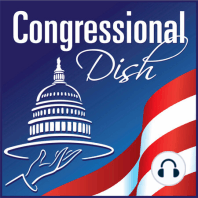9 min listen
CD028: The IRS Scandal
ratings:
Length:
31 minutes
Released:
May 18, 2013
Format:
Podcast episode
Description
In this episode, highlights from the House Ways and Means Committee IRS scandal hearing. IRS staffers made a list of keywords including Tea Party, 9-12, Patriot, etc. to help them find social welfare groups applying for tax exempt status that were actually political in nature. This is the scandal you've been told about; the real scandal is how many of them have been approved. Background How IRS "streamlining" in the 1990s led to mismanagement In January of 2010, the Supreme Court ruled in the infamous Citizen's United case that corporations count as people and that corporation donations count as speech, making them protected by the Constitution. This opened the floodgates to large amounts of corporate money making its way into U.S. elections. At the same time, the IRS saw a sharp increase in the number of groups claiming tax-exempt status under section 501(c)(4) of the U.S. tax code. Groups that qualify do not have to pay taxes to the U.S. government and, more importantly to political groups, do not have to disclose their donors. The law for 501(c)(4) groups says that they must exist "exclusively" for social welfare purposes, but an IRS regulation from 1959 says that they must exist "primarily" for social welfare purposes. That wiggle room has been applied broadly, to put it mildly, and we now have clearly political groups claiming tax-exempt status as 501(c)(4) organizations. In March of 2010, the division of the IRS charged with making sure that groups claiming tax-exempt status under section 501(c)(4) of the U.S. tax code were "primarily" social welfare groups, not political groups, made a list of keywords to look for in the names of groups that might indicate the groups were political in nature. The keywords they looked for include: "Tea Party" "Patriots" "9/12 Project" References to government spending, government debt, or taxes "Make America a better place" Statements criticizing how the country is being run. View the Inspector General report on the IRS scandal The IRS employees also asked questions that were considered unnecessary when they were finally analyzed by IRS management. Although the list was inappropriate, most of the groups analyzed during the same time period had names unrelated to the list. In the end, the IRS Inspector General found no evidence of corruption at the IRS; instead, they concluded the problems arouse out of mismanagement. However, the real problem as far as us American citizens are concerned, is that clearly political groups are being given tax-exempt status, allowing them to keep their donors secret. Out of the 298 applications the IRS Inspector General reviewed, 0 had been denied. Here are some examples of groups that enjoy tax-exempt status as social welfare groups: Crossroads GPS, the group co-founded by Karl Rove Priorities USA, the group that worked on behalf of the Obama campaign. Americans for Prosperity and Freedomworks, front groups for the billionaire Koch brothers' interests MoveOn.org, the group that focuses on "building the progressive movement". Further Reading How Real Disclosure Laws Could Help Fix the IRS Problem Also in This Episode Bills that passed the House of Representatives this week: Congressional Dish summary of H.R. 45, the Repeal ObamaCare Act Congressional Dish summary of H.R. 1062, the Prevent Wall Street Regulations Act People Quoted in This Episode Steve Miller, acting Commission of the IRS (has since resigned) Russel George, Treasury Inspector General for Tax Administration Rep. Dave Camp of Michigan Rep. Lloyd Doggett of Texas Rep. Adrian Smith of Nebraska
Released:
May 18, 2013
Format:
Podcast episode
Titles in the series (100)
Intro to Congressional Dish: Hello! This is Congressional Dish. Listen to this to find out what this podcast is all about. by Congressional Dish
